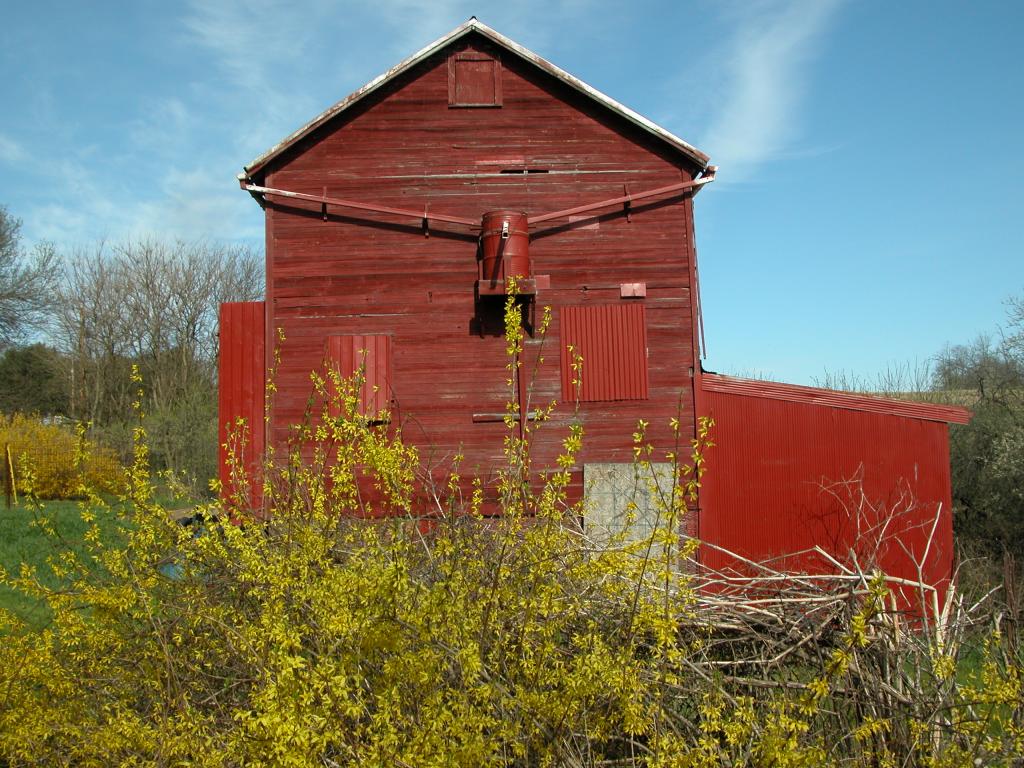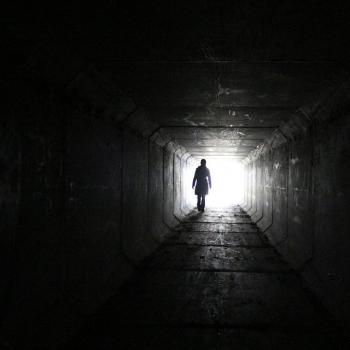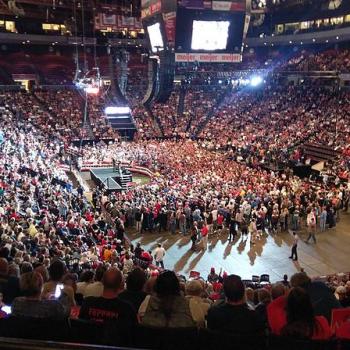It’s that time of year, again, when the ground begins to thaw and I’m out prepping my garden beds for the growing year. My seedlings are just coming up in trays inside, under my makeshift grow-lights: peppers, lettuce, and cabbage, so far; in theory I’ll get my fourteen varieties of heirloom tomatoes going tomorrow. I managed to prune the apple trees at the correct time this year, and hope to have my potato trenches dug in time for my traditional Good Friday burial of the spuds.
The life of an eco-grower is one that is intimately connected with the seasons, the soil, and the climate, often helplessly so, since our growing methods do not involve aggressive manipulation of nature but rather harmony with it. Part of that harmony means recognizing the reality that I, the human organism, am just one of countless living entities interacting and intersecting on this small square of land. Eco-growing depends on diversity: diversity of micro-organisms, diversity of varietals, and above all a fluidity in response to shifting circumstances.
“Think globally, act locally,” may be a trite mantra, but it’s the essence of what I do. I am aware of my place in a much larger eco-system and socio-economic system than what is immediately at hand. My peppers come from Thailand, the Caribbean, China, and Mexico. My tomatoes comes from Russia, Italy, and the middle east. I even grow a romaine lettuce variety that was developed in Israel, to withstand hot dry weather. What I do connects me with a global community of growers not only present but past: the generations that labored skillfully to develop and preserve their heirloom varieties. Often against the depredations of war and colonization.
But what I do also connects me in a bodily way with the countless organisms – larva, wasps, fungus, nematodes, bacteria, mammals, earthworms, spiders – that share my space. How they thrive relates to how my garden grows. Everything is interconnected, on a local level, but this spirals out into the world.
“Local” in the foodie world has nothing but good connotations. It means the food was grown nearby, in one’s own community, so buying it means investing in the community. It means you can actually go in person and see where the food was produced – “know your farmer, know your food.” Local food is fresher, can be picked riper, and need not be confined to varieties that were developed simply for their capacity to withstand long bumpy journeys in produce trucks. Your carbon footprint is smaller when you buy a local produce item that wasn’t shipped long distances and passed through different intermediaries.
So I was surprised when, a few years ago, I began to encounter people for whom “local” had a whole other set of connotations. Bad ones.
In 2016, I kept hearing about how farmers in the UK were supporting Brexit, and farmers in the US supporting Trump. This was perplexing to me, since both Brexit and the MAGA movement are driven specifically by a desire for homogeneity, a taste for nationalism, a tendency towards xenophobia, and suspicion of immigrants. And for me, working with creation means repudiating all those tendencies. It means embracing diversity, humbly acknowledging my position in a larger web of inter-dependence, rejecting illusions of radical autonomy.
And then I began to see other growers posting anti-immigrant material. People who were growing produce varieties developed in Syria and Mexico, trash-talking refugees whose grandparents may have been responsible for preserving these heirloom seeds, passing them down. I was shocked and dismayed, and – naively – confused. How can you be in this line of work, and not have reverence for all life? How can you be an eco-grower and not love diversity?
This was when I began to see the phenomenon of “bad local.” The kind of local that means “us first” or “others, keep out.” This kind of local doesn’t care where the seeds came from or who developed them; the important thing is, now they’re here, and they’re ours. It’s a fortress mentality, and every outsider is perceived as laying siege.
This has been a difficult thing for me to experience because it’s shattered my ideas about the ethical community of eco- and organic growers. And it means on a practical level that the people I meet in my work may be actively working to promote an agenda that actually harms what we do: Trump’s environmental policies will be hell on organic, especially in fracking country.
I’ve come to see the ugly side of local.
The xenophobia, the obsessive libertarianism which refuses to accept that anything is ours because of gift or privilege, which erases all past history for the sake of the here and now, the “local” in time. This has been depressing but eye-opening, and I am determined that in the seasons ahead I will do what I can, as I work, also to educate about where the food came from, what makes it possible to produce it, and what our most dire threats are.
image credit: from the author’s personal collection













